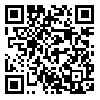Volume 3, Issue 3 (2023)
jpt 2023, 3(3): 225-234 |
Back to browse issues page
Download citation:
BibTeX | RIS | EndNote | Medlars | ProCite | Reference Manager | RefWorks
Send citation to:



BibTeX | RIS | EndNote | Medlars | ProCite | Reference Manager | RefWorks
Send citation to:
Mazari S. Assessment of Yale School’s Narrative Theology Model with Emphasis on the Concept of Narration. jpt 2023; 3 (3) :225-234
URL: http://jpt.modares.ac.ir/article-34-67848-en.html
URL: http://jpt.modares.ac.ir/article-34-67848-en.html
Sciences and Research Branch, Islamic Azad University, Tehran, Iran
Abstract: (1755 Views)
Narrative is a way to understand human affairs. Among these is the understanding of man himself. Human experiences need a mediator called narrative to be understood. It provides a possibility for self-expression, known as engaged self. This engaged self in the religious lived world is affected by the narratives that shape experiences. A movement in Christian theology called Narrative Theology attempted to show that the religious man's understanding of himself in the modern world is formed through biblical stories. Addressing the problem of human requirements in the modern world, narrative theology designed a system of thought based on narrative. This article aims to show the meaning of engaged self-based on narrative, and then, with a brief presentation of Yale school's narrative theology, it will describe the basis of the narrative concept. Finally, it will present criticisms based on the narrative concept by evaluating the mentioned theology.
Article Type: Literature Review |
Subject:
Philosophy of Religion (Modern)
Received: 2023/03/2 | Accepted: 2023/08/20 | Published: 2023/09/11
Received: 2023/03/2 | Accepted: 2023/08/20 | Published: 2023/09/11
References
1. Abbott HP (2008). The combridge introduction to narrative. Poorazar R, Asharfi N translator. Tehran: Atraf Pub. [Persian] [Link] [DOI:10.1017/CBO9780511816932]
2. Barthes R, Duisit L (1975). Introduction to the structural analysis of narratives. Narrative and Narratives. 6(2):237-272. [Link] [DOI:10.2307/468419]
3. Bruner J (2002). Making stories: Law, literature, life. Cambridge: Harvard University Press. [Link]
4. Crites S (1971). The narrative quality of experience. Journal of the American academy of religion0 39(3):291-311. [Link] [DOI:10.1093/jaarel/XXXIX.3.291]
5. Heyer K (2004). How does theology go public? Rethinking the debate between David Tracy and George Lindbeck. Political Theology. 5(3):307-327. [Link] [DOI:10.1558/poth.5.3.307.36721]
6. Lindbeck GA (1984). The nature of doctrine: Religion and theology in a postliberal age. Kentucky: Westminster John Knox Press. [Link]
7. Lints R (1993). The postpositivist choice: Tracy or Lindbeck?. Journal of the American Academy of Religion. 61(4):655-677. [Link] [DOI:10.1093/jaarel/LXI.4.655]
8. Loughlin G (1996). Telling God's story: Bible, church and narrative theology. Cambridge: Cambridge University Press. [Link] [DOI:10.1017/CBO9780511520143]
9. Pazouki Sh (2016). Christian Wisdom: A Comparative study with Islamic Wisdom. Tehran: Iranian Research Institute of Philosophy. [Persian] [Link]
10. Placher WC (1987). Paul Ricoeur and Postliberal Theology: A Conflict of Interpretations?. Modern Theology. 4(1):35-52. [Link] [DOI:10.1111/j.1468-0025.1987.tb00154.x]
11. Stroup III GW (1975). A bibliographical critique. Theology Today. 32(2):133-143. [Link] [DOI:10.1177/004057367503200202]
| Rights and permissions | |
 |
This work is licensed under a Creative Commons Attribution-NonCommercial 4.0 International License. |






